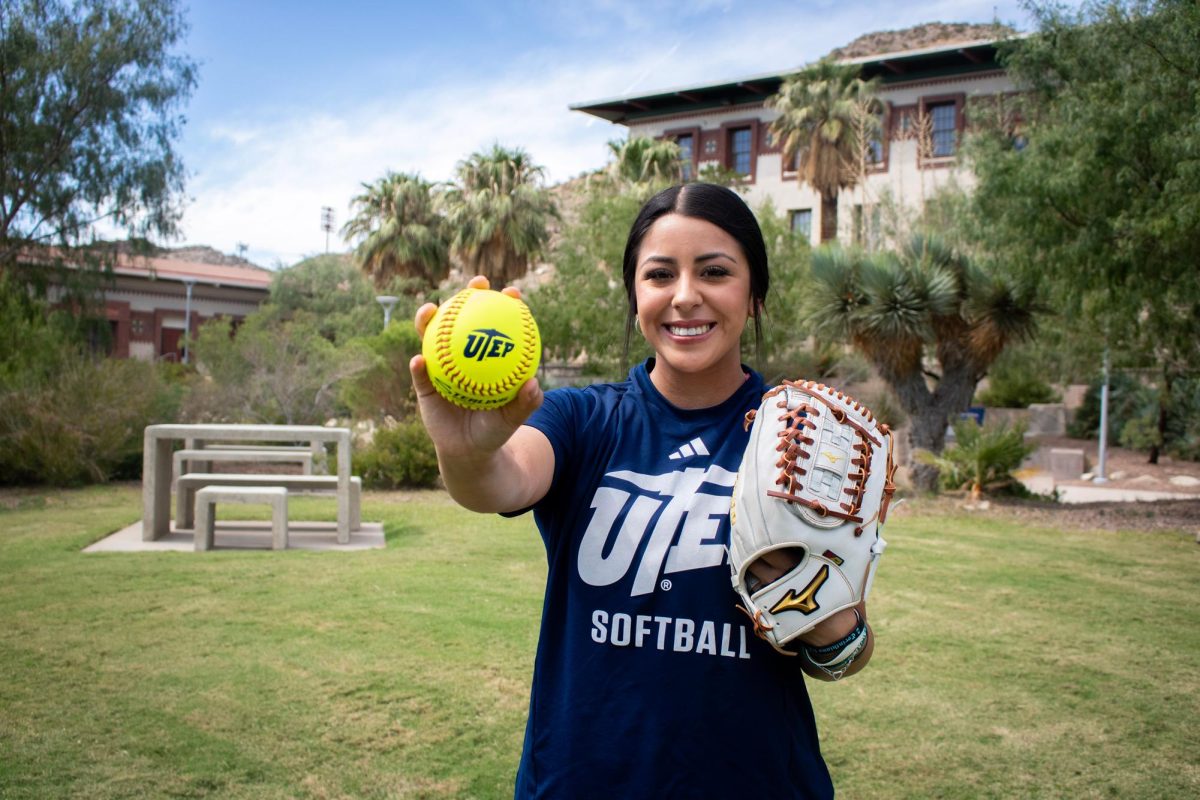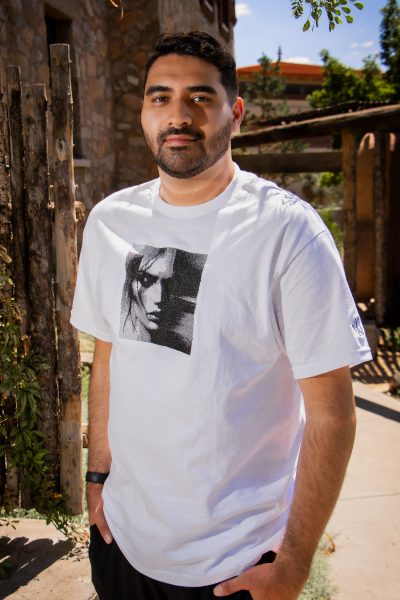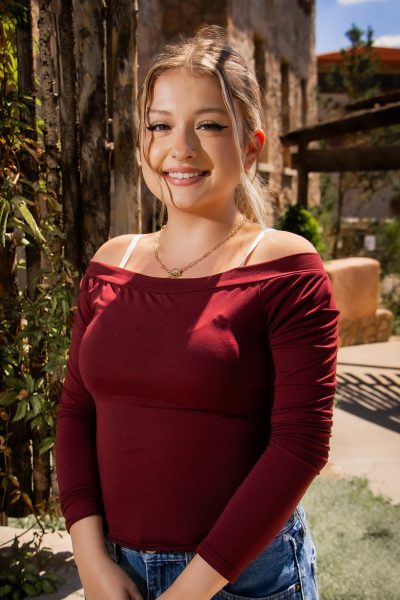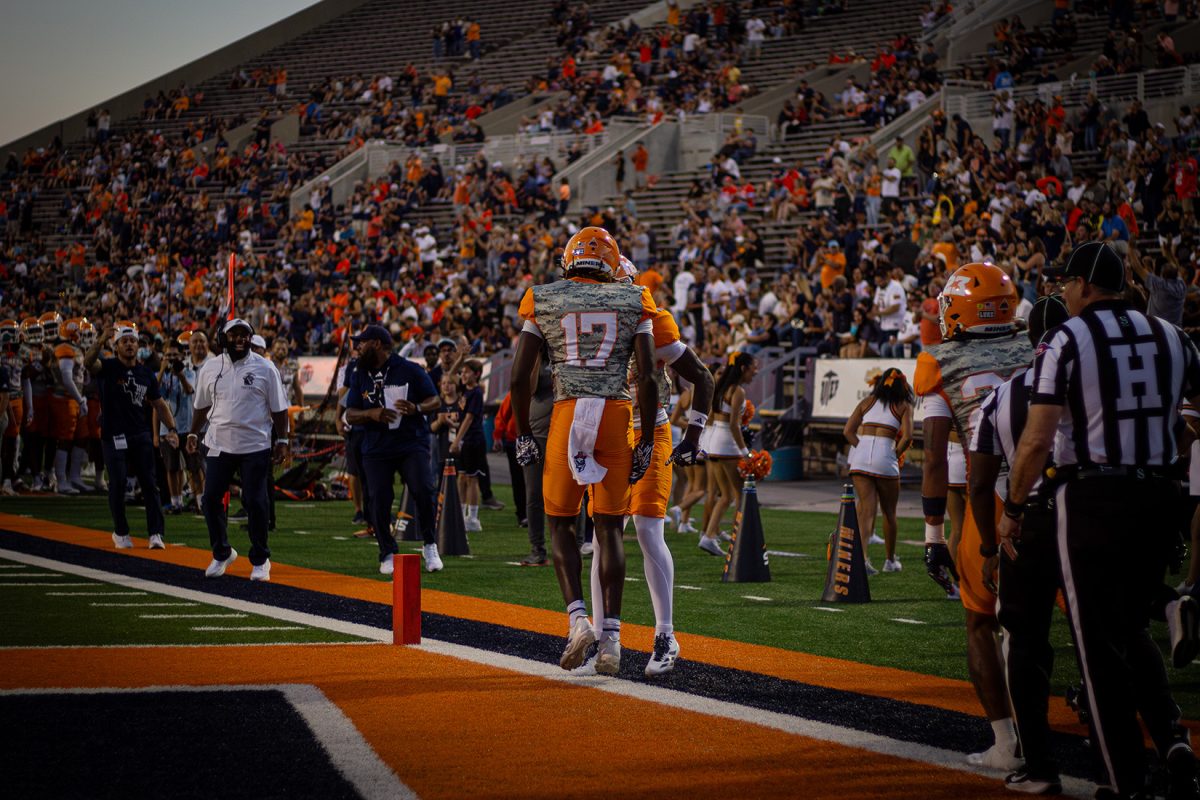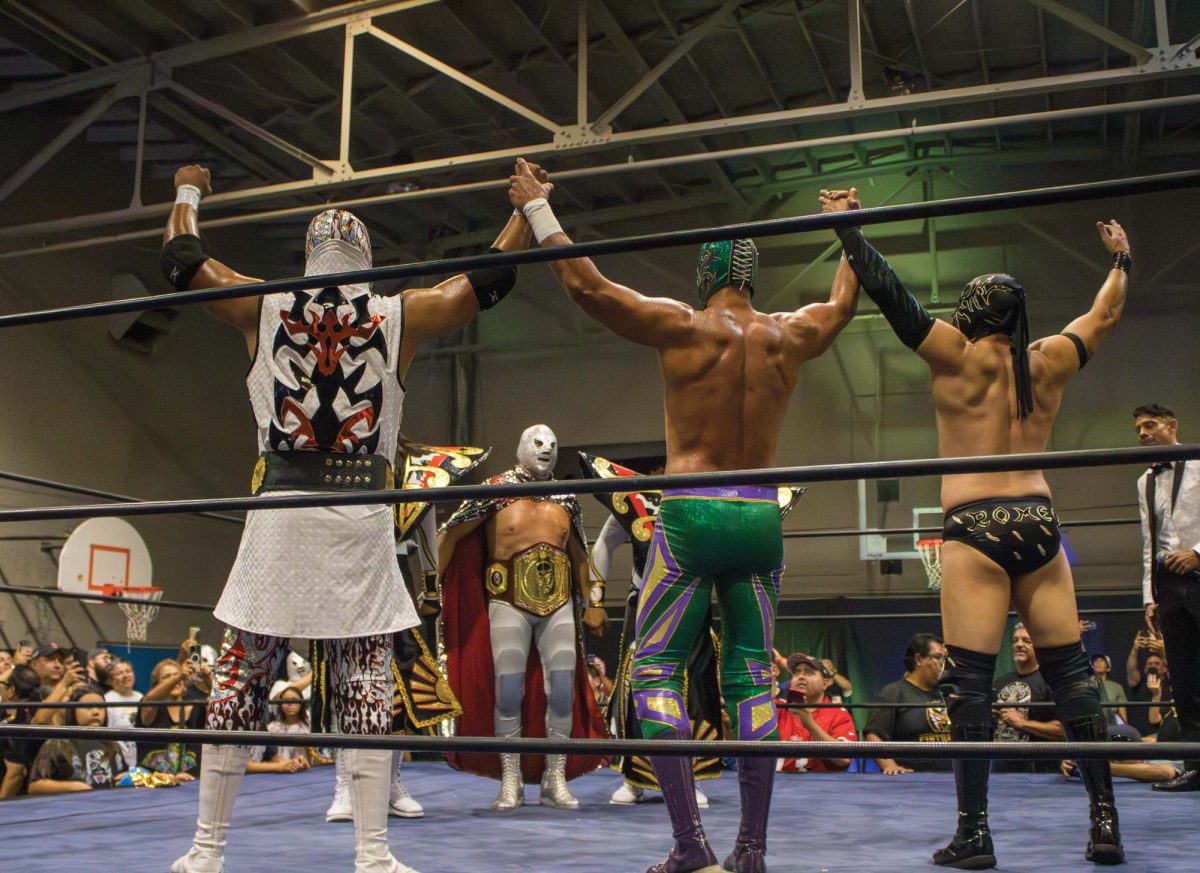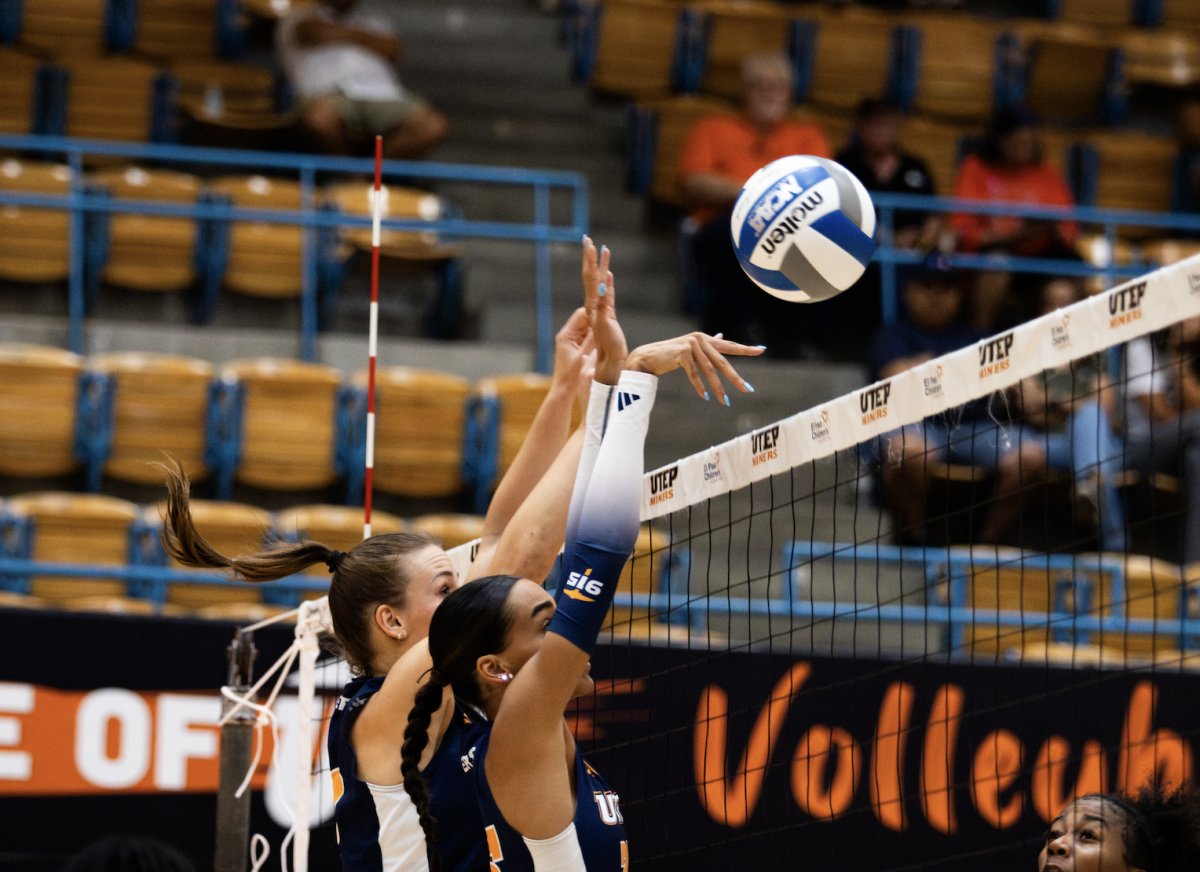Athletes come from different backgrounds and journeys. The decision to commit to a certain college can determine the future of their athletic careers even beyond collegiate sports. Out of hundreds of universities in the country, one begs to question what draws athletes to commit to The University of Texas at El Paso (UTEP).
Christalynne Sepulveda, a junior softball player for UTEP, has been a part of the team since she was a freshman.
An El Paso native who played softball at Americas High School, Sepulveda comes from an athletic family background.
“I feel like my family’s always been [a] very sporty family,” Sepulveda said. “I kind of saw it through my siblings too, and then that made me kind of like, wow, I want to do that. I started off looking up to my older sister to play softball.”
The plan to go to a division one school was not necessarily on her mind.
“I was just the kind of the type to just put my head down and work,” Sepulveda said. “I’ve been pretty set on UTEP for a while, so when I got the call, I was excited, and I committed pretty early.”
Her father was her travel coach and would be in communication with the scouts. He wouldn’t tell his daughter that the scouts were in attendance at her high school games so she would not feel nervous or scared.
Her UTEP visit felt familiar since she has lived in the El Paso area her whole life and attended Miner softball camps during her youth.
“It was nice, especially being from here, I already knew, the community and how supportive it is even from our high school playoff run,” Sepulveda said. “That’s how I also knew I wanted to come here because of the community just going crazy.”
While athletes transferring to different colleges for a variety of reasons has become more prevalent, Sepulveda plans to stay with the Miners.
“Some of the things keeping me here are community and culture,” Sepulveda said. “All the traditions here, the good food and the atmosphere. It makes it feel like home, so there’s nowhere else [I] want to be.”
Sepulveda’s goals for this season are to bat over .300, focus on one game at a time and help the Miners make the Conference USA tournament.
Ever since the NCAA adopted new rules regarding the transfer process, student athletes have acquired more agency when it comes to their future in college sports.
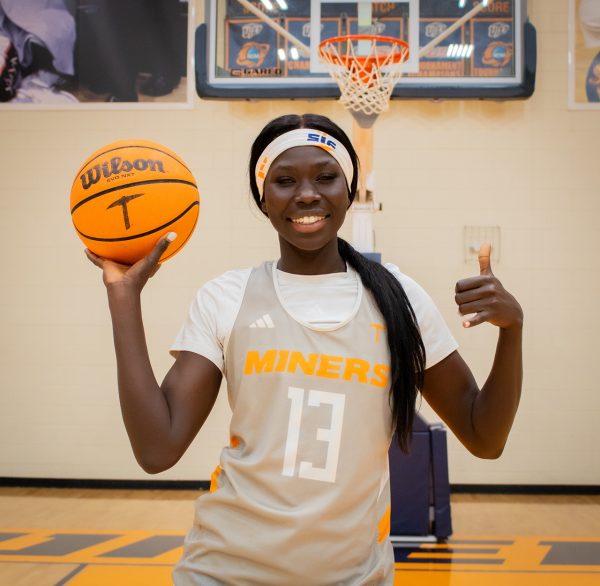
Ndack Mbengue from Bergamo, Italy, is a senior forward for the UTEP women’s basketball team.
She began her college basketball career at Cowley College in Fall 2022, which is part of the National Junior College Athletic Association (NJCAA) also known as JUCO.
While NCAA universities have four-year degree programs, JUCO institutions only have two-year programs meaning most teams only have players stay for a short time.
“It [Cowley College] was really good and then [I] stayed there for two years,” Mbengue said. “I think that’s the beauty of junior college. I mean, it’s about the people, not the place because it’s small schools in the middle of nowhere, but you really connect with the people, the fans.”
Mbengue had plans to go to a division one (D1) NCAA team, but she was not the only one with that goal at her junior college which created a competitive environment.
“It definitely gets competitive in JUCO because everybody wants to make it out of JUCO. Everybody wants to go play D1, that’s the goal for everybody,” Mbengue said. “You can’t do it on your own like you still need your teammates. And that’s why I love my JUCO team my sophomore year because we were like sisters. We played together and we just helped each other. We all wanted to get to the next level and, we just understood that you can’t do it on your own.”
Mbengue averaged 12.5 points per game and 10.4 rebounds per game with a field goal percentage of 53.8% her sophomore season. She made the decision to enter the transfer portal in 2024. When thinking about the university she wanted to play for, Mbengue concerned herself with getting sufficient playing time and being at a university where she felt valued.
“The challenge was just having to talk to a lot of coaches,” Mbengue said. “You never know, they might not be honest, they’re just going to tell you what you want to hear. Coming to my visit [at UTEP], talking to Coach (Keitha) Adams, seeing all the other coaches as well. I just felt that it was genuine, and that’s why I chose UTEP.”
While Mbengue had her own journey coming from Italy to El Paso, fellow JUCO athlete Fuka Sekita comes all the way from far east Asia.
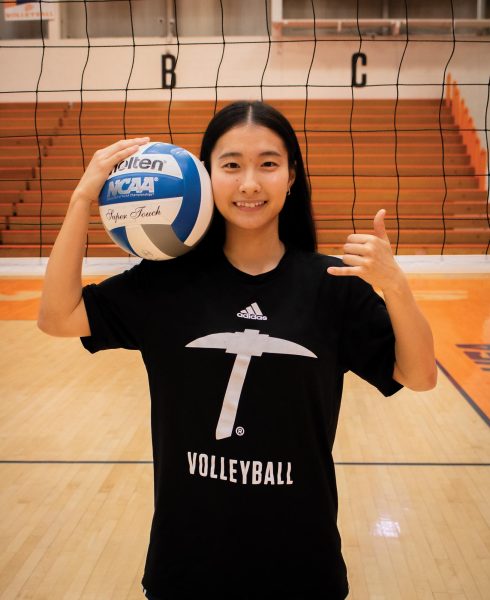
Fuka Sekita is a junior libero for the UTEP volleyball team. Originally from Hyogo, Japan, she began playing volleyball at 10 years old. Sekita described her younger self as shy, but she was able to be part of a community that centered around the sport.
“Before I started playing volleyball, I wasn’t competitive,” Sekita said. “But after I started playing volleyball, I was getting to be a competitive person.”
Despite a tough final 2022-23 season at Mukogawa Women’s University Senior High School, Head Coach Yoshitaka Yasutani was able to help Sekita build connections throughout the volleyball industry.
Sekita was offered the choice to play with the college that’s connected to her high school, but she was looking for other options for her future.
“I tried to go to the Army in Japan, but my mom was like ‘if you want to play volleyball, just play volleyball.’ So, I was like, ‘okay,’” Sekita said.
Sekita committed to New Mexico Military Institute (NMMI), a JUCO school. She described the school as strict and routine.
“We have to wake up at 6 a.m., and then go to formation, eat breakfast, then we had a class from 8 a.m. to 2 p.m., after that we had practice for two hours, three hours,” Sekita said. “It was hard my freshman year, but my sophomore [year], was really fun.”
American volleyball and the culture were different to what Sekita was accustomed to in Japan.
“A lot of hitters can hit straight down and the ball is so heavy. So, I have to adjust every skill,” Sekita said. “In the United States, everybody just [has an] open personality. But in Japan, you have to respect older people. When I was a freshman, I was kind of struggling to get conversations with older people, like the [volleyball] girls.”
Sekita says she has been able come out of her shell and express her emotions here in the U.S. Her family in Japan, especially her mother noticed she has changed in a positive way.
She was the captain of the NMMI volleyball team, her sophomore year. Even with the minor language barrier, she was able to have a great relationship with her teammates and coaches.
Entering the transfer portal, going to a division one school was the main goal because Sekita plans to play professionally after her college career.
“I told my coaches ‘I’m going to go D1,’” Sekita said.
Sekita visited the University of Louisiana Lafayette, Virginia Commonwealth University along with UTEP, which she had been visiting since her freshman year.
UTEP volleyball Head Coach Ben Wallis told her the team needed a libero for the 2025 season. Playing for a competitive team like the Miners was a main factor.
“I need to come to UTEP. You know, there’s no reason I say ‘no’ because I knew that they’re really good,” Sekita said.
Watching from afar and now on the team, Sekita has been able to connect well with fellow teammates such as senior outside/rightside hitter Sara Pustahija and junior setter Alexis Massey.
Moving forward, Sekita is looking to get the Miners back into the national tournament, become champions of Conference USA and become a professional player.
Although these student-athletes all chose to play for their respective UTEP athletic programs, no journey was the same, showing the diverse desires that shape their futures in and out of the game.
Kristian Hernandez is the sports editor for The Prospector and may be reached at [email protected] and on social media @northeastvideography.


